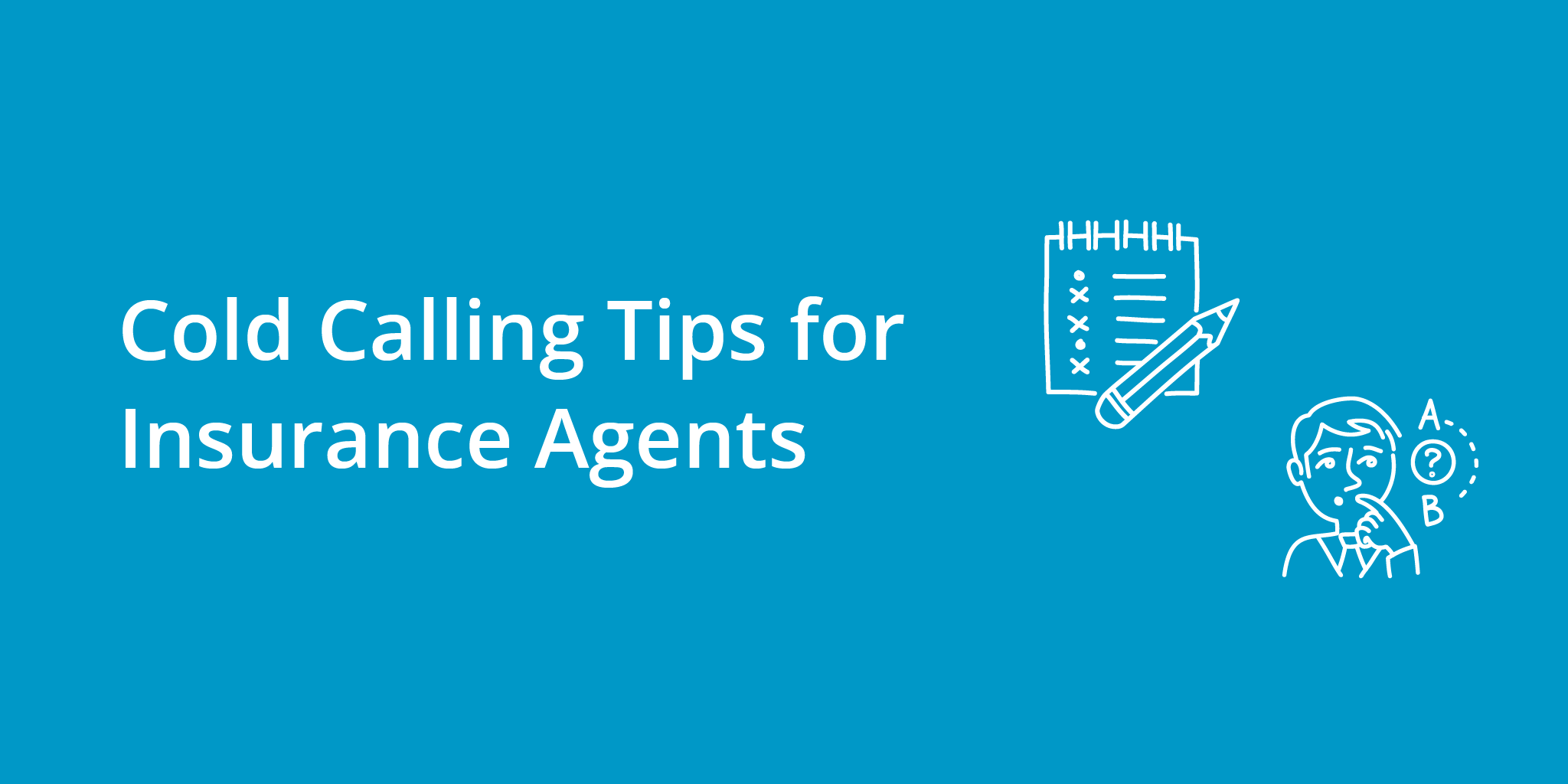- Successful Insurance Cold Calling
- Building an Insurance Cold Calling Script
- A Typical Insurance Cold Calling Script
Cold calling is never easy, and it’s especially challenging when you’re reaching out about something mundane like insurance. Consumers drag their feet over insurance; it’s an expense that offers little immediate gratification, and it’s difficult to get people excited about the opportunity to lower the cost of bills for things they don’t really believe could ever possibly happen to them.
But selling insurance doesn’t need to be as hard as it seems. For one, insurance companies aren’t usually considered one of the reviled sales callers in cold calling. Over 55% of respondents to a survey said they felt insurance companies offered good or very good customer service.

Successful Insurance Cold Calling
Most advice for success in insurance cold calls can be applied to all cold calls. But some steps are even more crucial when you’re selling a personal product like insurance. You’ll be asking customers to divulge sensitive information about their personal life to a stranger, details about their family, income, plans, hopes, and fears. Gaining trust is paramount.
- Research – You need to know as much as possible about the client before making each call. With prior knowledge of their approximate income, family size, and existing insurance products (when such details are available to you), you have a massive advantage. Instead of attempting to pitch a product that will undoubtedly be of little interest to them, you already have a good idea of what might work. This research can be aided by a CRM integrated with your phone system.
- Find common ground – Your research, hopefully, will often highlight places where you and the prospect have something in common. This simple, shared connection can be the catalyst for the lead to begin trusting you over all the other salespeople who have contacted them.
- Remain positive – Friendly callers are always more likely to get further in a cold call. Insurance is a product with morbid themes like health woes, accidents, theft, funerals, death, and bereavement. Keep the discussion focused on the product’s positives. Otherwise, leads may just avoid your calls altogether because they just don’t want to think about it!

- Listen – Perhaps the most important thing to do on an insurance cold call is to listen to the client. Everyone has different needs for insurance, but they might not know exactly what’s on offer. Your job is to become a guide, a trusted expert who can communicate on their level about the pros and cons of the various insurance products on the market. Your active listening skills are much more critical in insurance sales calls than your ability to pitch or upsell products.
- Be human – Record your sales calls and listen back to them. Do you sound like yourself or do you sound like a salesperson? Most people switch off when they hear a sales pitch coming. It’s best to be yourself on cold calls and approach them like you would a normal conversation (while still keeping it professional, of course).
- Stop pitching – Many insurance sales callers pitch their product too often. You don’t need to sell a product every call. Ask the prospect questions and gain their trust first. Only when you’re truly sure you can put together the best package for them that meets all their needs, including budget, should you begin to offer them the product.

Building an Insurance Cold Calling Script
Every lead you call will require a personalized approach. Sticking rigidly to a sales script on every call is a recipe for failure. Instead, use your research to tailor your template sales script to each person you call, considering what they might need, where they are in the sales journey, and the answers to your questions.
Every script should have a friendly opening. We’ve previously discussed our favorite cold call opening lines to break the ice, and they work well for insurance sales calls too. You should get to the point quickly, be upbeat, and avoid asking for the customer’s permission to talk to them.
Good options for insurance sales call openers are to ask how the prospect has been, discuss something you’ve learned about them, mention the holidays, or simply be blunt about the purpose of the call.
Insurance cold calling scripts then move to qualifying questions that give you more information on what the customer wants (and what they absolutely don’t want). Use open-ended questions instead of questions that can be answered with a simple yes/no, as you need the conversation to get started and learn as much as possible while doing so.
Establish a follow-up as a closing goal. Your goal isn’t usually to get a sale, certainly not on the first call. A typical goal is to get more contact details from the customer, such as an email address and permission to send them further information on the products you’ve discussed together. Set up another time for the conversation to continue, thank them for their time, and move onto the next stage of the sales cadence.

A Typical Insurance Cold Calling Script
“Hello, is that Stephen Thompson? I’m David Dawkins from Gray Leaf Coverage.
I’m calling as many of our clients are finding [relevant pain point]. I specialize in insurance for [appropriate demographic], helping people like you. I wondered if you’ve been experiencing [pain point] yourself and whether I can be of assistance?
[Pause for details]
I’m interested that you have/haven’t had issues with [pain point]. Our product offers [benefits], so I think I can help you out there. Can you tell me more about what you want from your insurance?
[Pause for further details and deeper discussion]
Thank you, it’s been great talking with you. I’ll send those PDFs to you in a moment. Have a look through them when you can, and I’ll call you back in a few days. Thanks again for your time!
The various pain points and benefits you offer will differ based on the prospect. For example, health insurance cold calls will go very differently when addressing a young person or a senior citizen. Younger leads are more likely to care about the lowest prices. For older leads, you can mention that you specialize in insurance for their age group with better coverage for pre-existing conditions.
If the prospect suggests they don’t have a problem with the pain point you outline, you can pivot to other issues by outlining more benefits of your product. It’s vital to listen to the client and get them to open up about what they want from their insurance product. A friendly, measured, personalized insurance sales call will help you achieve this.



